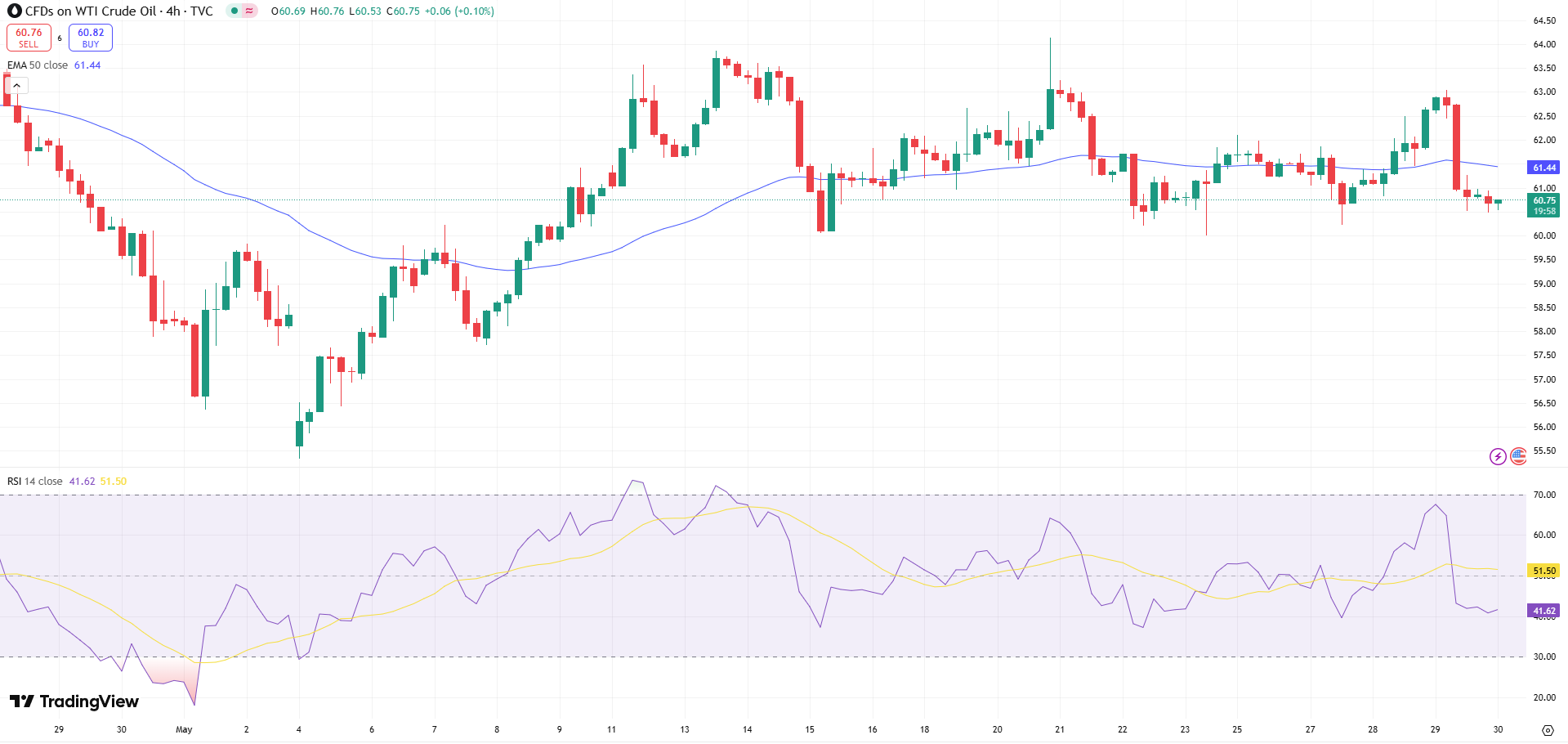Crude oil prices continued to decline on Friday, poised for a second straight weekly loss as markets braced for a potential production hike by OPEC+. Brent crude futures dipped 31 cents, or 0.48%, to $63.84 a barrel by 0424 GMT, while U.S. West Texas Intermediate (WTI) crude fell 31 cents, or 0.51%, to $60.63 a barrel. Brent’s July futures contract expires Friday, marking a pivotal point for traders.
Both benchmarks have lost around 1.5% so far this week, as anticipation builds for OPEC+’s meeting on Saturday. According to Westpac’s Robert Rennie, “The stage is set for another bumper production increase,” potentially exceeding the 411,000 barrels per day hikes of the last two meetings.
Surplus and Tariffs Weigh on Oil Outlook
A growing global surplus of 2.2 million barrels per day (bpd) is prompting analysts to warn of a necessary price adjustment to stabilize the market. JPMorgan analysts expect crude prices to hover around current levels before slipping into the high $50s per barrel by year-end.
Adding to market headwinds, a U.S. federal appeals court reinstated President Trump’s tariffs on Thursday, overturning a lower court’s block. This legal shift reversed Thursday’s initial price drop of more than 1%, sparked by the trade court’s ruling against the sweeping duties.
Key pressure points include:
- OPEC+ likely to hike output when members meet on Saturday
- Trump tariffs back in effect, adding legal and trade uncertainty
- 10% drop in oil prices since Trump’s April 2 “Liberation Day” tariff announcement
Demand Recovery Slow, but Travel Supports Prices
On the demand front, global oil consumption has shown signs of recovery, supported by robust U.S. travel over the Memorial Day weekend, as noted by JPMorgan.

However, the monthly expansion in global oil demand is tracking at roughly 400,000 bpd as of May 28, falling short of expectations by about 250,000 bpd.
Further complicating the demand landscape:
- Washington’s directive for U.S. companies to halt shipments of ethane and butane to China without a license
- Revocation of licenses already granted to key suppliers
- Continued worries of recession driven by escalating trade tensions
Despite these headwinds, traders are watching for a clearer picture from Saturday’s OPEC+ meeting and fresh U.S. inflation data, which could further impact oil markets heading into the summer.


